Sevilla wins second straight Europa League title; clinches UCL berth

Dnipro Dnipropetrovsk and Sevilla traded goals in a highly entertaining Europa League final on Wednesday, scoring four goals between them in the first half and five total. Sevilla eventually came out on top in the competition for the second successive year, 3-2, at Poland’s National Stadium in Warsaw.
For the first time, this Europa League winner goes straight to the subsequent Champions League, giving the Warsaw final added meaning. Both teams’s intensity showed as much, as both fought for a berth in the continent’s premier club competition for which they failed to qualify via league play.
The third-place finishers in the Ukrainian Premier League, Dnipro took a surprise lead just seven minutes in. Sevilla, La Liga’s fifth-ranked club, reversed it with two goals in three minutes near the half-hour mark, but a calm free kick from Dnipro captain Ruslan Rotan tied it again just before halftime.
Colombian striker Carlos Bacca starred for Sevilla, scoring twice and assisting the other goal to lead the Andalusian club. His 73rd-minute goal ultimately sealed Sevilla’s victory.
Here are three thoughts on a riveting Europa League final on Wednesday in Warsaw:
Philosophical arguments rage on after entertaining final
From the very start of the match, each teams’s expected contrasting approaches cut through the butterflies of a major tournament final. Both clubs reverted to the philosophies that got them to Warsaw, with Sevilla controlling possession and Dnipro happy to absorb pressure and break forward quickly.
Who's on the move? Major summer transfers to watch across Europe
On Nikola Kalinić’s opening goal, a simple ball from the back found the forward on the last line of Sevilla’s defense, and he flicked wide to winger Matheus. He chipped a cross back toward Kalinić in the middle, and Dnipro took a quick lead on its first shot of the game.
Sevilla resumed control, continuing to keep the ball, and eventually applied enough pressure to break through the Ukrainians’ stoic defense.
The second goal in particular had all the hallmarks of possession football: a short series of vertical passes through the middle and a ball slipped through to Bacca for the finish.
Perhaps polarizing manager José Mourinho is to blame for the stigma surrounding the reactive game model he has popularized. Chants of “boring, boring Chelsea” rang out from the stands as his team won the Premier League this year with time to spare, opposing fans vocalizing their ire toward what they believed to be negative tactics.
However, as both Dnipro and Chelsea showed, waiting for opponents to make mistakes is a viable strategy that shrinks the gap between favorites and underdogs. Sevilla ultimately prevailed on Wednesday, but it needed a first-half set piece and a rather chaotic winning goal to defeat the plucky Ukrainians.
This is still a great day for Ukraine in midst of political turmoil
As the conflict between Russia and Ukraine rages in its home country, creating unfavorable conditions for multiple teams in the Premier League, Dnipro rose above it to give its countrymen reason for joy. They made it all the way to the final despite not playing a UEFA match at home all season.
Soldiers play some soccer amid ceasefire in Ukraine conflict
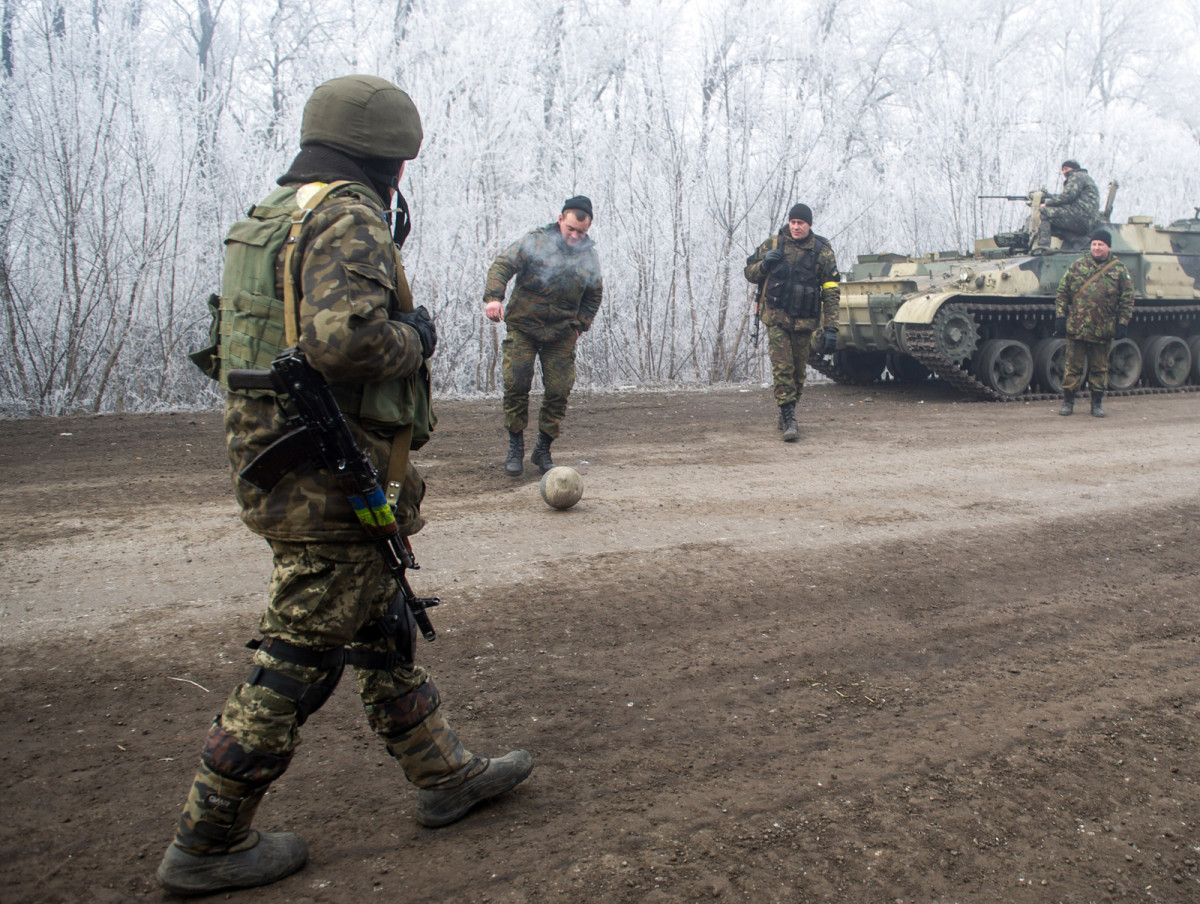
Ukrainian President Petro Poroshenko ordered troops to abide by the truce from midnight, in line with a deal reached in Minsk earlier this week with the leaders of Russia, Germany and France.
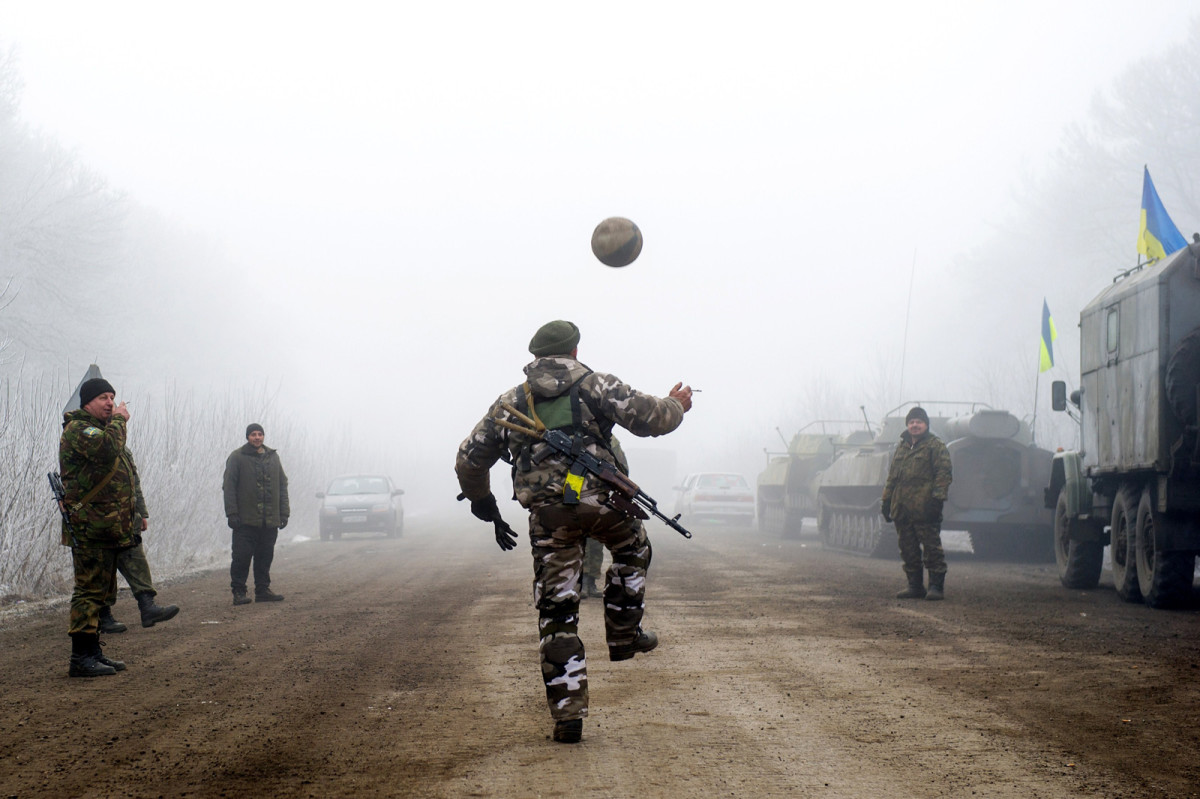
According to multiple reports, the ceasefire was by and large observed across the front. An exception: reports of continued fighting in Debaltseve, near where these soldiers are pictured.
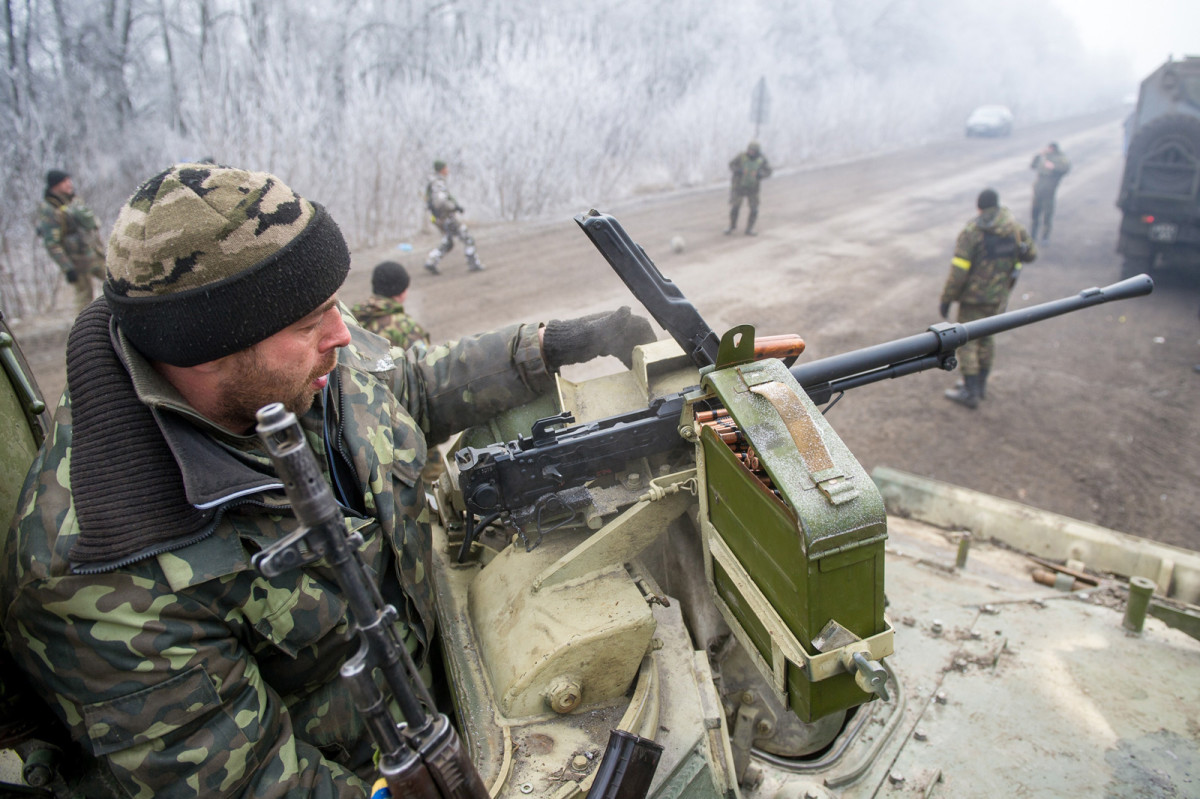
Debaltseve, a town of just over 25,000 a short distance from these pictures, has become an epicenter of clashes between Ukrainian forces and pro-Russian rebels.
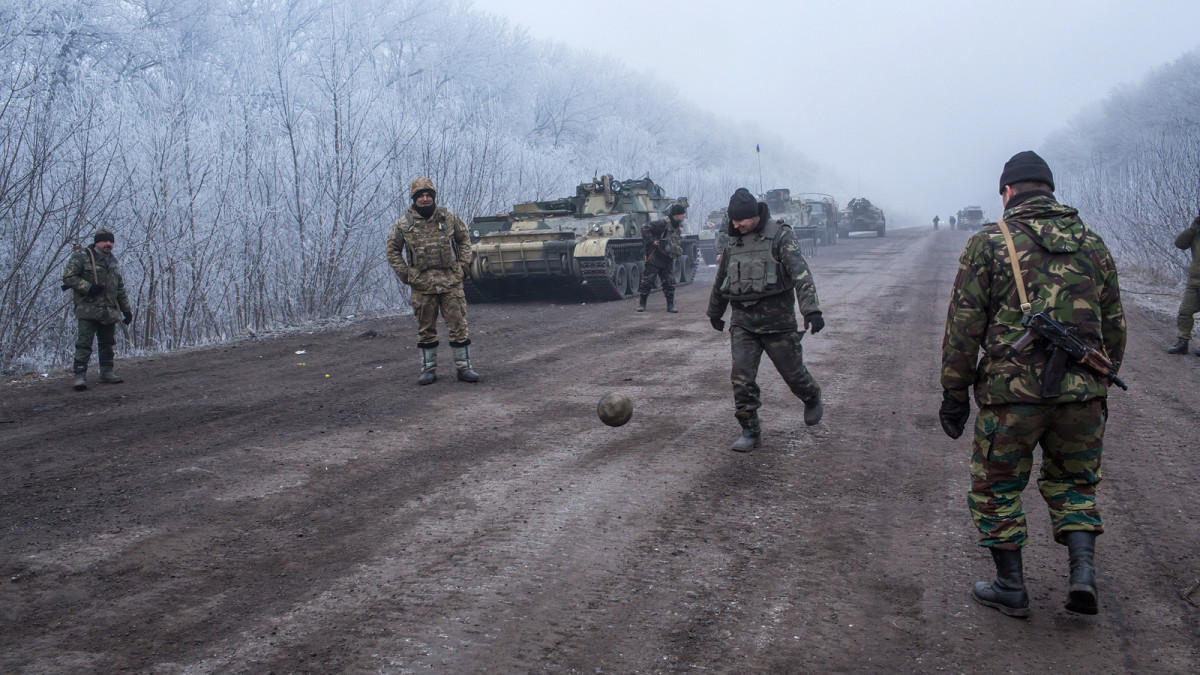
Ukrainian soldiers play football on the road leading to the embattled town of Debaltseve on February 15, 2015 outside Artemivsk, Ukraine.
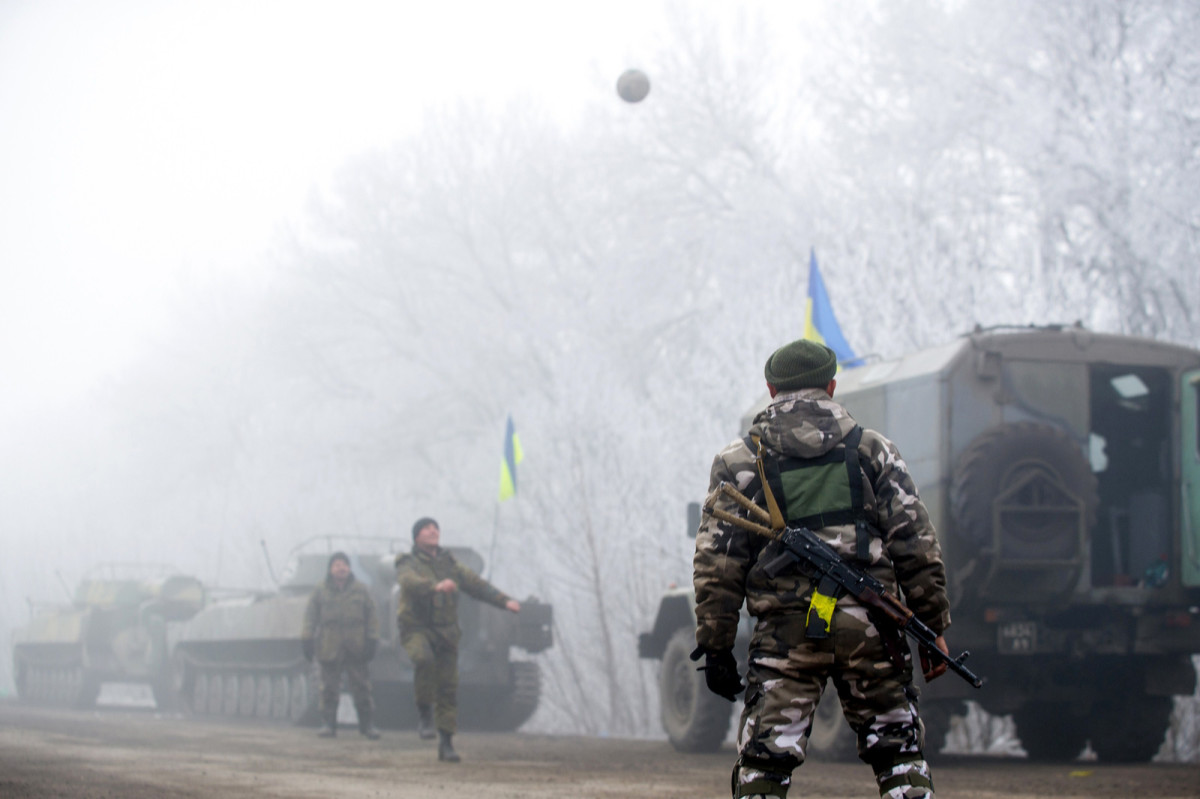
The ceasefire between pro-Russian rebels and Ukrainian forces went into effect at midnight on Sunday, the day these photos were taken.
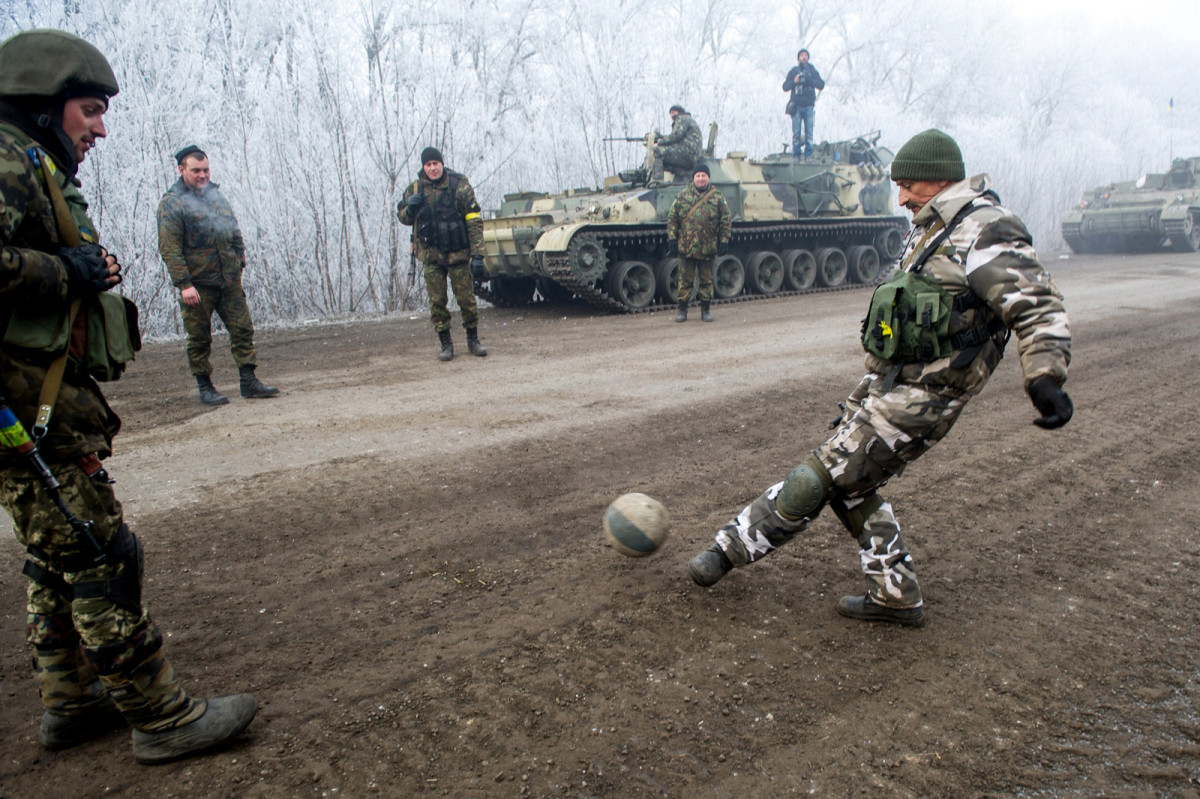
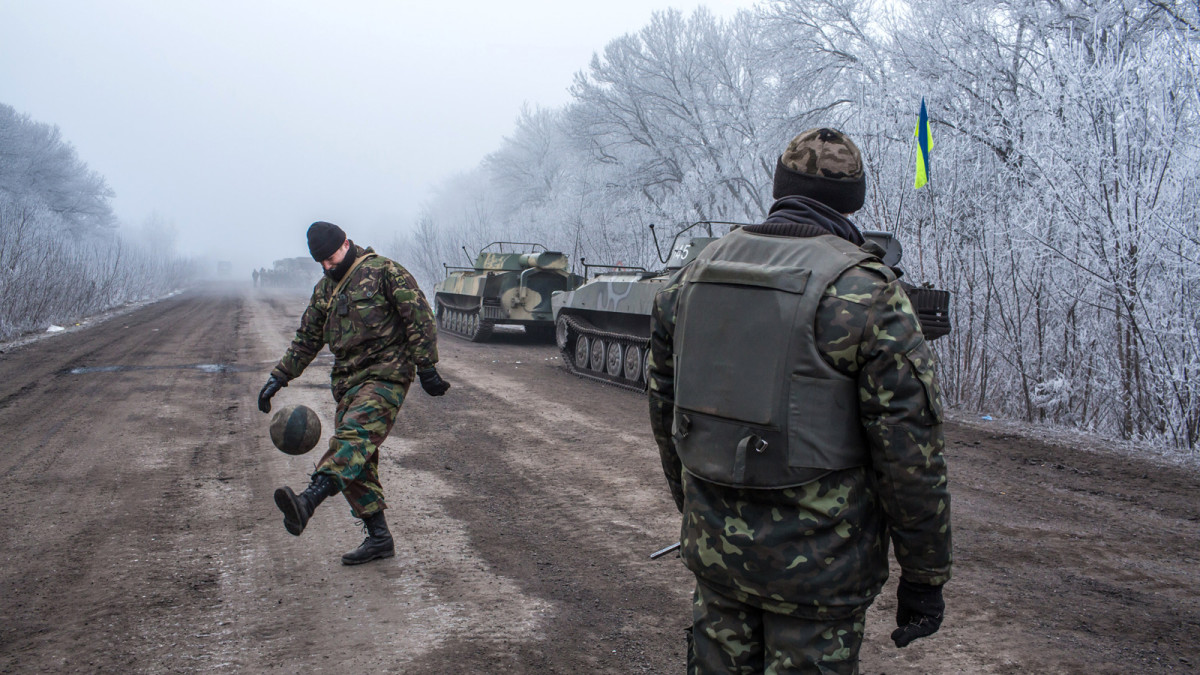
Ukrainian soldiers play football on the road leading to the embattled town of Debaltseve on February 15, 2015 outside Artemivsk, Ukraine
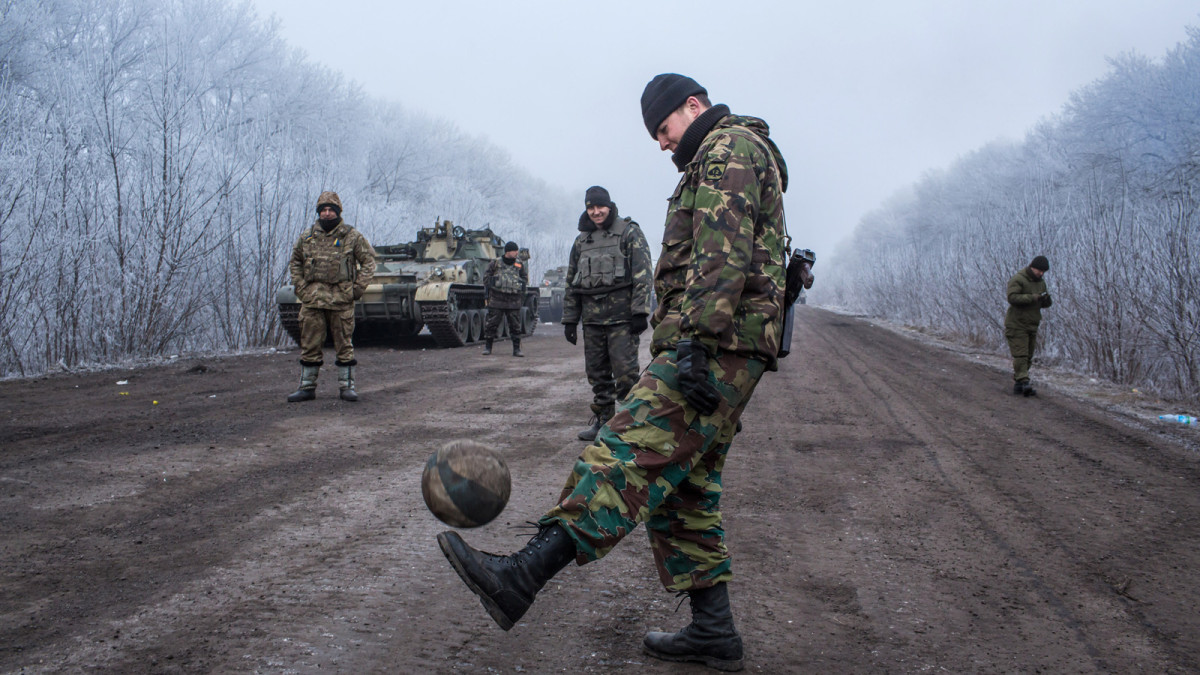
Ukrainian soldiers play football on the road leading to the embattled town of Debaltseve on February 15, 2015 outside Artemivsk, Ukraine.
Although the town of Dnipropetrovsk is over 100 miles from the war zone in eastern Ukraine, Dnipro played “home” matches in Kiev—280 miles and over a six-hour drive away. The team showed a great fighting spirit throughout, and its fans reciprocated with vociferous support.
By many measures, Dnipro was the hardest team to beat in the Europa League this year.
It finished with eight clean sheets in the competition, scoring just 13 goals leading up to the final but conceding a measly 10 (those numbers jumped to 15 and 13, respectively, after meeting Sevilla).
The Ukrainians played much of Wednesday’s final against the run of play again, but they finally met an opponent that could handle the responsibility of running the match without committing too many errors. After eliminating Napoli, with two-leg series specialist Rafa Benítez at the helm, Dnipro simply couldn't muster one more upset.
Another Spanish side emerges as a continental power
As Atlético Madrid broke the Barcelona-Real duopoly in La Liga last year, winning the league and making a run to the Champions League final, Sevilla quietly won the lesser European cup. Under one of the brighter young minds in the Spanish managerial world, 43-year-old Unai Emery, Sevilla also finished fifth in the league twice in a row.
Carlo Ancelotti's firing a product of Florentino Perez's Real Madrid culture
Emery’s detail-oriented approach and subtle tactical changes led the team to dominate the 2014-15 Europa League, scoring 29 goals in 15 games to lead the competition. League efforts have fallen short of Atlético, Real and Barça, but Sevilla has been on the verge of breaking into the top four places since Emery’s appointment two seasons ago.
Newfound stability since the turn of the century has seen the club win the competition four times, a record, in two back-to-back efforts (2006 and 2007 was the other). With the extra financial windfall from finally making the Champions League, it could give Sevilla the extra push to join Spain’s elite on a yearly basis.
It’s not just a two-horse race in La Liga anymore. The second-tier teams have bridged the chasm between the powerhouses and the underdogs, at least enough that the other two—or three, next year—qualifiers for Champions League must also be taken seriously by anybody they come up against.
